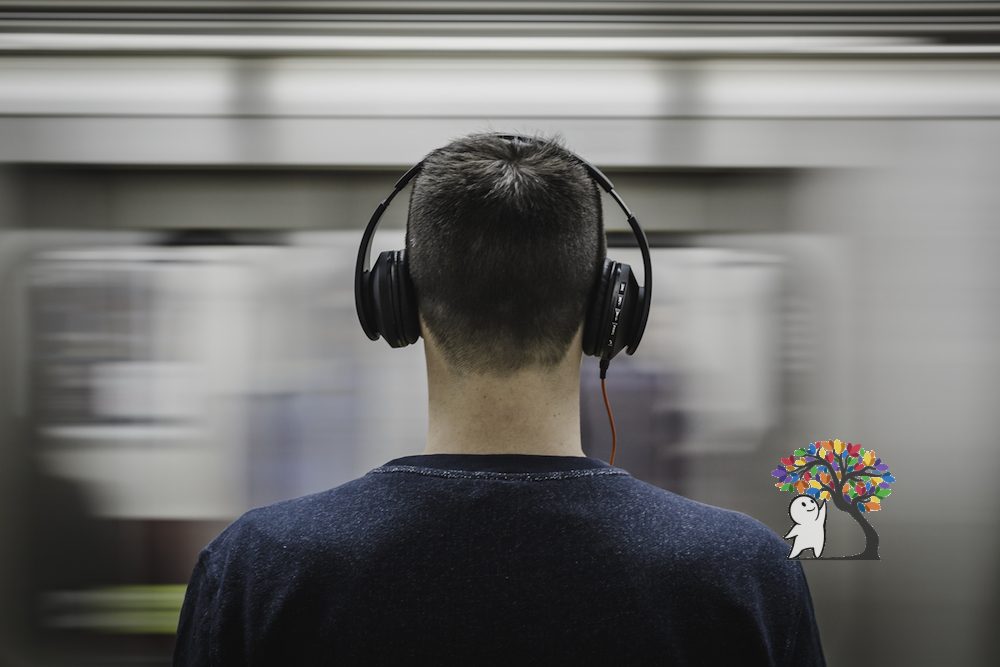Are You Oversensitive To Sound? You May Want To Know About Misophonia

Do Certain Sounds Annoy You?
Apparently, there’s a condition called misophonia, and it’s a lot more common than you might think. People with this condition are annoyed or even angered by certain sounds, such as chewing or tapping. Unfortunately, most of the common “trigger sounds” for misophonia are sounds you’re likely to hear everyday.
According to Dr. James Cartreine, Phd. of Harvard University, “people with misophonia are affected emotionally by common sounds — usually those made by others, and usually ones that other people don’t pay attention to.” These people experience a fight-or-flight response triggered by a certain sound. This makes them angry with a desire to escape, but these feelings can manifest physically in an expanse of ways.
Your Brain on Sound
A single part of the brain – the anterior insular cortex – is responsible for both anger and processing outside input (such as sound). When this cortex is overactive, the person becomes extra sensitive, especially emotionally, to sound. It tricks other areas of the brain into activity, such as the areas responsible for fear, emotions, and long term memory.
This overactivity may be related to an overabundance of fatty tissue in the brain.
“The researchers also used whole-brain MRI scans to map participants’ brains and found that people with misophonia have higher amounts of myelination,” explains Dr. Cartreine. “Myelin is a fatty substance that wraps around nerve cells in the brain to provide electrical insulation, like the insulation on a wire. It’s not known if the extra myelin is a cause or an effect of misophonia and its triggering of other brain areas.”

What Does It Feel Like?
“Basically my misophonia has gotten to the point that any sound, if repetitive, will make me freak out. It’s like I’m constantly alert and my ears are always searching for trigger sounds, which is why I sleep with headphones and white noise and a box fan on high every night.” – Ryan, Misophonia Institute
While any mental condition will be experienced differently from person to person, symptoms of misophonia generally add up to the symptoms of anxiety: an increased heart rate, fight or flight response, even anger.
youtube https://www.youtube.com/watch?v=17rlScNRTlA
Misophonia, the hatred of certain sounds, is not to be confused with misophobia, the fear of certain sounds, or with volume sensitivity. Those who suffer from misophonia experience both physical and emotional reaction in response to hearing one of their “trigger sounds.” According to Dr. Cartreine, noises from the mouth are the most common trigger sounds, while repetitive noises are also notorious.
Misophonia sufferers often invest in noise-cancelling headphones to wear whenever they may be exposed to a trigger sound. They may try to avoid a situation altogether, but when everyday sounds such as chewing or pen tapping are triggers, it can become a real hassle to steer clear of these noises.
How Do I Know If I Have It?
The best advice I could give about making diagnoses is seeking the guidance of a psychiatric professional. You and your symptoms will need to meet misophonia diagnostic criteria, and your psychologist may lead you through a series of tests. Most of the diagnostic criteria is similar to symptoms of obsessive compulsive spectrum disorder (OCSD), which includes impulsive or obsessive behaviors.
It’s tough to test for misophonia, which is why it is recommended to see a psychologist or psychiatrist for a diagnosis. A professional can identify certain behavior patterns and distinguish them from those of General Anxiety Disorder or from OCSD behaviors.
Life With Misophonia
With a little help, those who live with misophonia can have completely regular lives. It’s all about learning how to manage symptoms and limiting exposure to trigger sounds. A few small changes can make a huge difference, so no one with this condition needs to worry.
Works Cited
Cartreine, James. “Misophonia: When Sounds Really Do Make You ‘Crazy.’” Harvard Health Publishing, 21 Apr. 2017, doi:10.3897/bdj.4.e7720.figure2f.
Kim, Meeri N. “Misophonia Is a Newly Identified Condition for People Hypersensitive to Sound.” The Washington Post, WP Company, 1 Dec. 2014, www.washingtonpost.com/national/health-science/misophonia-is-a-newly-identified-condition-for-people-hypersensitive-to-sound/2014/12/01/7c392782-69ba-11e4-a31c-77759fc1eacc_story.html?utm_term=.1b417eba22cc.
“Ryan’s Story.” Misophonia Institute, misophoniainstitute.org/ryans-story/.
Schröder A, Vulink N, Denys D (2013) Misophonia: Diagnostic Criteria for a New Psychiatric Disorder. PLoS ONE 8(1): e54706. https://doi.org/10.1371/journal.pone.0054706


what if i have misophonia AND tinnitus? i can’t wear noise cancelling headphones because that’s going to make my tinnitus even worse. i can’t go everywhere wearing earphones listening to music/white noises. my condition is even starting to affect my academic life, for example: whispering and loud breathing in class, these two makes me go insane, i can’t do anything about them but exit the classroom and cry in the restroom, and miss half of the lecture. It’s really hard, and I want to go see a psychiatrist about my issue but I don’t have the time..